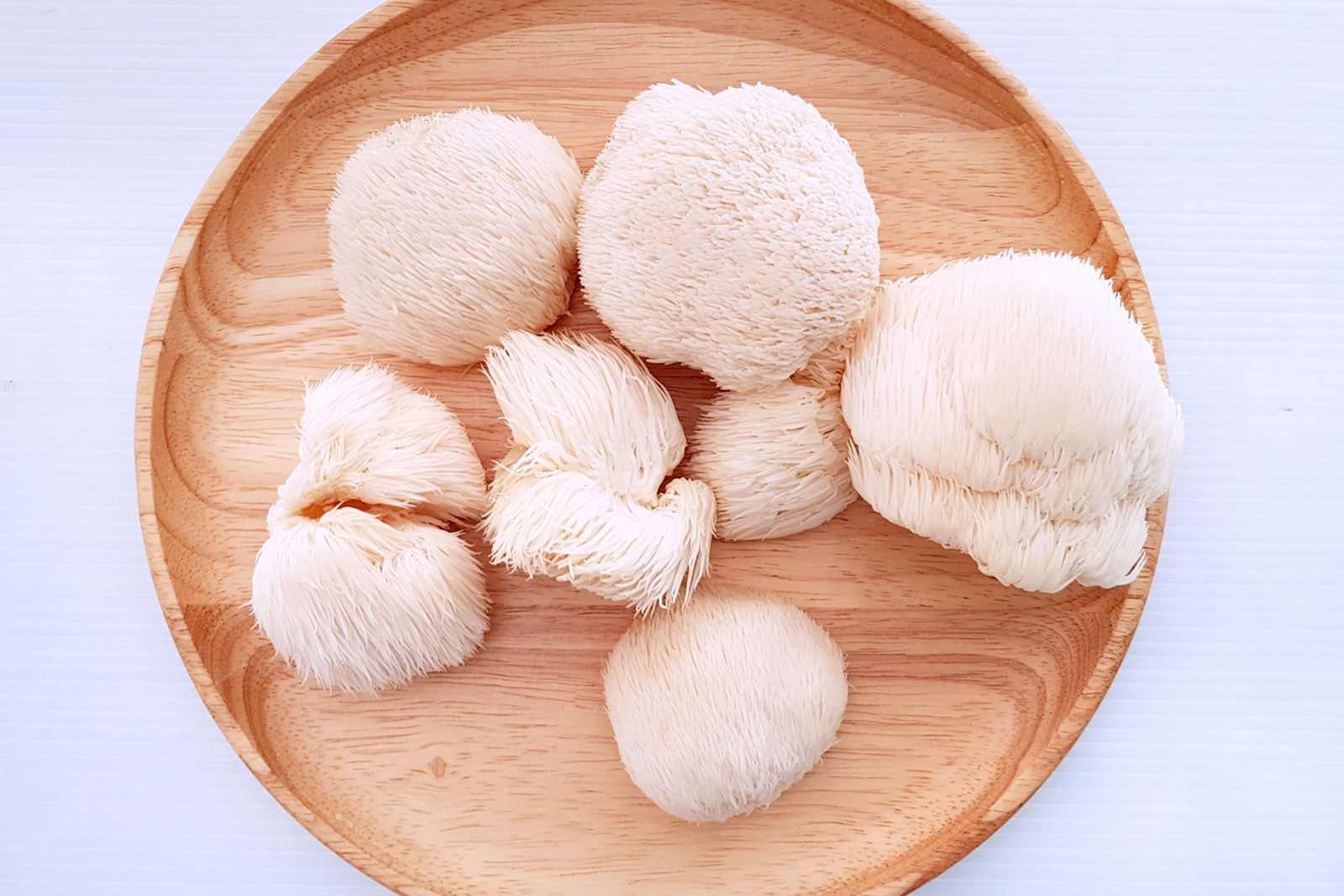Introduction: You’ve probably seen them pop up in health food stores or even as a trendy supplement—lion’s mane mushrooms. With their shaggy, icicle-like appearance, they certainly live up to their name. But these fungi aren’t just visually striking. They’re also touted for offering some impressive health benefits, from brain boosts to heart health.
Are these mushrooms really all they’re cracked up to be, or are they just the latest food fad? Let’s break down the potential benefits (and the science behind them) so you can decide whether they’re worth adding to your diet.
What Are Lion’s Mane Mushrooms?
First off, lion’s mane mushrooms are a type of edible fungus with a unique look that resembles the mane of a lion (hence the name). They’re known for their mild, slightly sweet flavor—think lobster or crab meat—and are often used in cooking or as a supplement.
In traditional Chinese medicine and Native American healing practices, lion’s mane mushrooms have long been used for their potential health benefits. But, with modern science catching up, these mushrooms are gaining popularity due to their reported effects on the brain, heart, and gut.
Are Lion’s Mane Mushrooms Good for You?
While lab studies on lion’s mane mushrooms have shown promising results, human research is still limited. Unfortunately, these mushrooms aren’t FDA-approved, so we can’t make solid claims about their effectiveness long-term. But before you hop on the lion’s mane bandwagon, it’s important to think about why you want to try them.
Here’s a quick tip: If you’re considering supplements, always check with your healthcare provider first to avoid any surprises. And, like any supplement, make sure you’re buying from a reputable source.
Top 5 Health Benefits of Lion’s Mane Mushrooms
Boost Brain Health and Focus Lion’s mane is often called the “smart mushroom” because of its potential to support cognitive function. Lab studies suggest that lion’s mane mushrooms help produce nerve growth factor (NGF), which is essential for growing and repairing brain cells. Some studies even show that it might boost memory and focus.
One study showed promising results for older adults with mild cognitive impairment, where those taking lion’s mane mushrooms performed better on cognitive tests. However, more research is needed to confirm these results in humans. For now, think of it as a brain booster—but don’t expect instant genius status!
Fight Inflammation and Oxidative Stress Chronic inflammation is linked to many diseases, including heart disease, arthritis, and cancer. Luckily, lion’s mane mushrooms have natural anti-inflammatory and antioxidant properties that may help reduce inflammation and protect your cells from damage.
As dietitian Beth Czerwony points out, anti-inflammatory foods are always a good thing. So, adding lion’s mane mushrooms might be a tasty way to support your body’s defense system—without the need for extra pills!
Protect Your Gut Health Gut health is all the rage right now, and for good reason! Your digestive system plays a crucial role in overall well-being, especially when it comes to immune function. Lion’s mane mushrooms contain probiotics, which support healthy gut bacteria and may even help protect against H. pylori—a harmful bacteria linked to stomach ulcers.
One study even found that lion’s mane mushrooms could help treat ulcers in rats. While we need more human studies, this fungus might be a future ally in improving gut health and fighting off digestive issues.
Support Heart Health Good news for your heart—lion’s mane mushrooms might help lower cholesterol and reduce high blood pressure. Some studies suggest that lion’s mane can improve lipid metabolism (how your body breaks down fats) and help maintain healthy blood vessels, leading to better circulation.
That said, more research is needed to know if these effects translate to humans. But if you’re already trying to live a heart-healthy lifestyle, adding lion’s mane mushrooms could give you an extra boost!
Fight Cancer Cells It might sound like something out of a science fiction movie, but some studies suggest that lion’s mane mushrooms have anti-cancer properties. While non-human research has shown that these mushrooms may help slow the growth of cancer cells, human studies are still lacking.
So, while lion’s mane might not be a cure-all, it’s an exciting area of research that may one day contribute to cancer-fighting strategies.
What to Consider Before Trying Lion’s Mane Mushrooms
Lion’s mane mushrooms are available in various forms: fresh, dried, and supplements (capsules, powders, gummies). But whether you’re buying them fresh or opting for a supplement, make sure to purchase from a trusted brand with good reviews. If you’re new to these fungi, always start with a small amount to see how your body reacts.
As Czerwony wisely advises, do your research before incorporating any supplement into your diet. And, of course, check with a healthcare professional if you have any concerns.
Final Thoughts: Should You Try Lion’s Mane Mushrooms?
While lion’s mane mushrooms are not a magic cure, they do show promise in supporting brain health, reducing inflammation, protecting your gut, and potentially benefiting your heart. However, the jury is still out on whether they live up to the hype in humans, and more research is needed.
If you’re curious about adding them to your diet, consider starting slow. Whether you toss them in your morning smoothie or try them in a dish for dinner, these mushrooms could be a fun and healthful addition to your routine—just don’t expect them to be a miracle worker!
Call to Action: Have you tried lion’s mane mushrooms yet? Let us know your experiences or drop your questions in the comments! And if you’re looking for more info on brain-boosting foods, check out our other articles on natural ways to support your mind and body.




